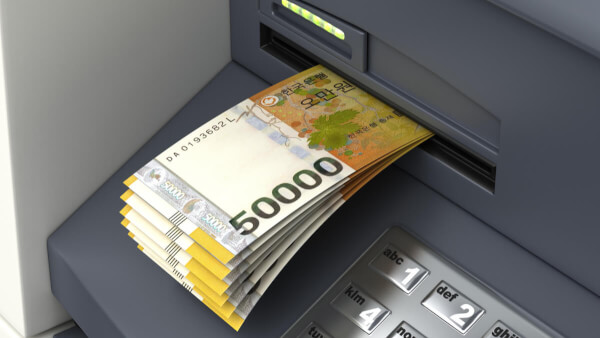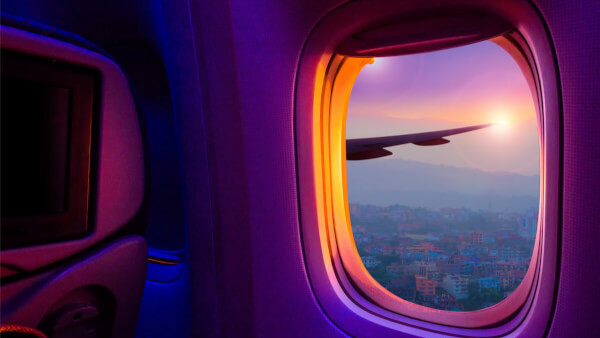Best way to withdraw cash abroad - Tips to avoid fees
Wondering how to get cash while overseas? This guide walks you through the best methods to withdraw cash abroad and tips on avoiding unnecessary fees.

If you need a convenient, secure and flexible way to spend and make cash withdrawals overseas, getting a multi-currency travel card can be a great option. In New Zealand two popular travel cards are the Mastercard Cash Passport NZ1 and the Wise card. But what’s the difference between the Wise card vs Cash Passport?
This guide to Wise vs Cash Passport reviews the features, fees, limits and services available from both, so you can see which might work best for you.
| Table of contents |
|---|
The Cash Passport NZ is a travel card issued on the Mastercard network. It’s a multi-currency card which lets you hold any of 10 major currencies, for convenient spending and withdrawal overseas. You’ll have a linked digital account you can manage in an app - or you can choose to top up in a store if you’d prefer to manage your money face to face. The Cash Passport card is issued to New Zealand residents.

We’ll take a look at the important fees to consider when using a Cash Passport in a moment - but first a focus on the benefits of the Cash Passport Mastercard in New Zealand:
Wise is a specialist in digital multi-currency accounts, debit cards, and international payments, and offers the Wise card to residents of New Zealand and many other countries globally. You can add money to your Wise account in NZD and convert to any of 40+ supported currencies for holding and exchange, or just leave your money in dollars and let the card convert when you pay with no foreign transaction fee. Wise currency conversion uses the mid-market exchange rate with no markup and transparent fee from 0.35% (varies by currency).
Please see [terms of use](https://wise.com/terms-and-conditions) and [product availability](https://wise.com/help/articles/2978049/which-countries-can-i-use-wise-in) for your region or visit [Wise fees and pricing](https://wise.com/pricing/) for the most up to date pricing and fee information.
Let’s start with an overview of the benefits of the Wise card before we dive into a head to head comparison of Wise vs Cash Passport on features, fees and exchange rates.
Shopping around for the right travel money card for you is essential to make sure you get the best available deal. We’ve picked out some of the most important features and fees of the Wise card vs Cash Passport for international use below, and we’ll get into some details about fees, rates and limits, in just a moment.
Both Cash Passport and Wise card are available in multiple countries
Before you choose if Wise or the Cash Passport is right for you, it’s helpful to compare the two on fees and charges. That can mean your money goes further when you’re abroad.
| Cash Passport | Wise card | |
|---|---|---|
| Card issue fees | No fee to order online | 14 NZD |
| Top-up fees | 0.5% debit card load fee 1% or 10 NZD fee (whichever is greater) for in store top ups. Free when transferring from a local account. | 1.8% when paying with a card. 0.65 NZD + 0.2% when paying with POLi. Free when transferring from a local account. |
| ATM fees | 4 NZD for each domestic withdrawal. For international withdrawals, fees varies based on currency (3.5 AUD in Australia for example) | 2 withdrawals to the value of 350 NZD per month free, then 1.5 NZD + 1.75%. |
| Currency conversion fees | Mastercard rate + an additional fee which can vary, and which will be notified to you before you confirm | Mid-market exchange rate + conversion fee from 0.23% |
| Foreign transaction fees | 5.95% | No foreign transaction fee |
To summarise:
For New Zealand residents, Cash Passport 10 currencies in your account. Wise on the other hand supports 40+ currencies, and access to up to 9 local account details. The Wise further supports international transfers to 160+ countries.
Cash Passports have a lot of different limits to consider.
The minimum load amount is 250 NZD. You can make ATM withdrawals up to 3,000 NZD a day, and spend up to 1,500 NZD in person. You’ll be able to add up to 25,000 NZD to your card account on any given day by bank transfer or bill pay - but only 15,000 NZD if you use a debit card. If you use a debit card there are also limits to the amount you can top up in a week or month.
As you can see, there’s quite a lot to remember when it comes to Cash Passport limits - if you run into a limit when you transact you’ll be notified in the Cash Passport app5.
Wise limits are straightforward for NZ cards. There’s just a 52,500 NZD monthly limit and a 7,000 NZD withdrawal limit monthly6. In most cases you can hold as much as you like in your account. If you want to, you can set lower daily or monthly limits in the Wise app.
Wise uses the mid-market exchange rate for all currency conversion, and splits out the fee you pay transparently. Costs are low and start from 0.23%.
Currency conversion with Cash Passport uses the Mastercard rate as a basis, but there’s then a variable fee which you’ll be shown when you convert your funds. The fee can depend on the type of transaction - for example, you may get a different rate in a store compared to online, and you might get a different rate for exchanging within your account vs when you cash out7.
One very important fee to note with Cash Passport: if you spend a currency you don’t have in your account there’s a 5.95% foreign transaction fee to pay. This applies even if you’re spending in a supported currency but forgot to switch your balance over in advance.
Which travel card is right for you might come down to what you want and your personal spending preferences. Overall, Wise has a more flexible account product and more transparent, easy to understand approach to fees and exchange rates. Wise could also be right for you if you want more than a travel card - you can also hold and exchange 40+ currencies, send payments to 160+ countries, and receive payments easily to your account using local account details in 9 currencies.
One key extra benefit of the Cash Passport is the flight delay pass - plus the option to walk into an agent location and get your card instantly and in person. Aside from this, Cash Passport has fewer supported currencies vs Wise, and can come with higher overall costs for currency conversion or ATM use.
Use this guide and Wise vs Cash Passport review to decide if either is suitable for your spending patterns, so you know you have the perfect card in your pocket for your next overseas trip.
*Please see terms of use and product availability for your region or visit Wise fees and pricing for the most up to date pricing and fee information.
This publication is provided for general information purposes and does not constitute legal, tax or other professional advice from Wise Payments Limited or its subsidiaries and its affiliates, and it is not intended as a substitute for obtaining advice from a financial advisor or any other professional.
We make no representations, warranties or guarantees, whether expressed or implied, that the content in the publication is accurate, complete or up to date.

Wondering how to get cash while overseas? This guide walks you through the best methods to withdraw cash abroad and tips on avoiding unnecessary fees.

Considering BNZ's Travel Card for your upcoming travels overseas? Our guide cover all the features and benefits including caveats about the exchange rates.

Considering ASB's Travel Card for your upcoming travels overseas? Our guide cover all the features and benefits including caveats about the exchange rates.

Complete Guide to Travel Card offered by ANZ Bank in New Zealand: Review of different options that work best for travel purposes.

Considering Kiwibank's Travel Card for your upcoming travels overseas? Our guide cover all the features and benefits including caveats about the exchange rates.

Complete guide to Westpac Travel Card for New Zealand. Read to learn more about the features, fees, and more in our articles.